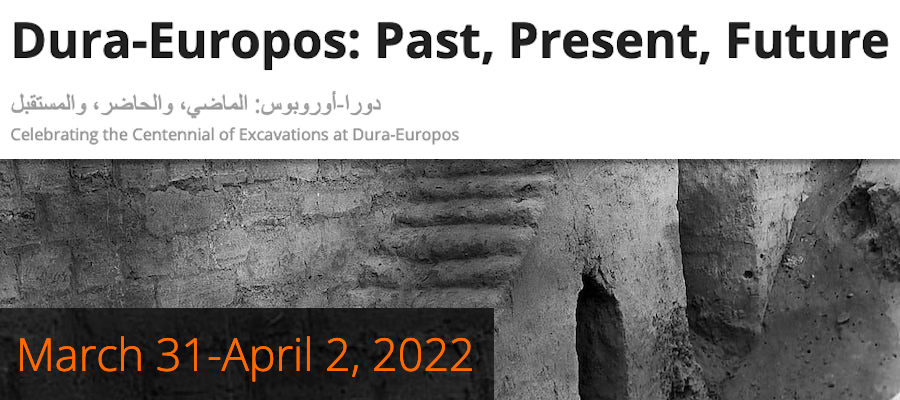Dura-Europos: Past, Present, Future, Yale University and Zoom, March 31–April 2, 2022
The ancient town of Dura-Europos, located on the bank of the Euphrates River in present-day Syria, is critically important for its extraordinary archaeological preservation. Besieged and conquered in ca. 256 CE, the city lay abandoned until excavations were begun in the early twentieth century. Dura-Europos exemplifies a multiethnic frontier town at the crossroads of major trade routes—regional and global—linking various ancient cultures and great empires to the west and east. With its Jewish, Christian, Mithraic, and other sanctuaries, and textual remains in a variety of languages, it attests to the kind of cross-cultural interconnectivity that was demonstrably central to the ancient world, but has been too often obscured by Eurocentric historiographic traditions and siloed disciplinary divisions. Due to the survival of a vast amount of architecture and artifacts at Dura-Europos, the site serves as an important reference point for those who study the Syrian Euphrates region, the Middle East in antiquity, and beyond.
The widely publicized recent systematic looting of Dura-Europos in the course of the ongoing Syrian civil war has irrevocably compromised the in situ remains for future scientific research. As such, the aim in this conference to reflect on the site’s 21st-century geopolitical entanglements, its regional and long-distance ties in antiquity, and its future for research as drawn from museum collections and archival materials is especially timely.
This three-day event is sponsored by Yale University’s interdisciplinary ARCHAIA Program for the Study of Ancient and Premodern Cultures and Societies, with the generous support of The MacMillan Center’s Council on Middle East Studies and the Edward J. and Dorothy Clarke Kempf Memorial Fund.
In compliance with university health and safety guidance, speakers will deliver their papers in New Haven, and in-person attendance is open to Yale affiliates. A live-stream of the papers for those outside of the Yale community will be available via Zoom.
